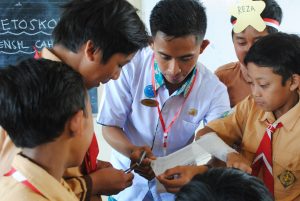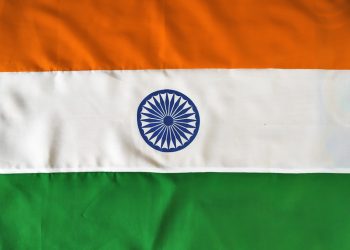No products in the cart.
India’s Ambitious Leap into Research Equity: Decoding the ‘One Nation One Subscription’ Plan
India’s ambitious "One Nation One Subscription" (ONOS) initiative seeks to level the playing field in academia by granting millions of students and researchers nationwide access to top global academic journals and fostering a culture of innovation.
India has unveiled a bold initiative aimed at revolutionizing access to academic knowledge: the “One Nation One Subscription” (ONOS) plan. Announced by the Union Cabinet on November 25, 2024, the program promises to democratize access to scholarly resources for millions of students, researchers, and educators across the country. With a budget allocation of ₹6,000 crore for 2025-2027, ONOS positions India as a pioneer in making scientific research and academic journals accessible on a national scale.
A Unified Knowledge Frontier
At its core, ONOS is a strategic response to the financial and logistical barriers that have traditionally hampered equitable access to high-impact academic research. Spearheaded by the Department of higher education, the program is a centralized subscription model that will provide over 1.8 crore students, faculty members, and researchers from more than 6,300 government higher education institutions and research labs access to nearly 13,000 e-journals from 30 leading global publishers.
The Information and Library Network (INFLIBNET), a specialized body under the University Grants Commission (UGC), will coordinate the initiative. A unified digital portal will serve as the gateway for institutions, streamlining the process of accessing a treasure trove of academic resources.
Why ONOS Matters
 Career Development
Career DevelopmentILO Highlights Steven Sim’s Role in ASEAN Skills Development at GSF 2025
At GSF 2025, ILO Director-General praised Steven Sim's efforts in advancing ASEAN's skills agenda, impacting youth leadership and professional development.
Read More →The Information and Library Network (INFLIBNET), a specialized body under the University Grants Commission (UGC), will coordinate the initiative.
India’s higher education and research institutions have long faced disparities in access to scholarly materials. While premier institutions like the IITs and central universities often benefit from extensive subscriptions to international journals, many tier-2 and tier-3 colleges and regional research facilities struggle to afford even the most basic access. ONOS is designed to level this playing field, erasing the financial inequalities that have perpetuated a knowledge divide across the country.
This centralized subscription model is expected to not only cut costs by eliminating redundancies but also enhance the bargaining power of the Indian government in negotiations with international publishers.
A Catalyst for Innovation
The timing of ONOS could not be more significant. India’s National Education Policy (NEP) 2020 identified research and innovation as central pillars for the country’s development. By providing universal access to high-quality resources, ONOS is likely to stimulate groundbreaking research, enabling Indian scholars to contribute meaningfully to global academic discourse.
The initiative is also a response to India’s growing aspirations as a research hub. As of 2023, India ranked among the top five countries in scientific publications, but its potential for innovation has often been constrained by limited resource availability. ONOS could bridge this gap, fostering a new era of interdisciplinary collaboration and innovation.
 Entrepreneurship
EntrepreneurshipWashington D.C. Boosts Math Education Through Parental Workshops and Major Philanthropic Investment
Washington D.C. Public Schools has launched a new math proficiency initiative, combining hands-on parental workshops with a multimillion-dollar philanthropic donation.…
Read More →However, the success of ONOS will depend on its implementation.
Challenges on the Horizon
However, the success of ONOS will depend on its implementation. Ensuring seamless access across institutions of varying technological readiness will be a challenge. Critics have also raised concerns about the sustainability of such a massive financial commitment and whether the program will effectively measure its impact on research outputs.
Moreover, while ONOS has been lauded as a landmark initiative, its potential to disrupt the traditional revenue models of publishers cannot be ignored. Striking a balance between India’s goals and the interests of global publishing giants will require careful diplomacy.
The Road Ahead
ONOS reflects India’s commitment to becoming a knowledge-driven economy. By breaking down barriers to academic resources, the initiative could empower a generation of researchers and innovators. If successful, ONOS may well serve as a blueprint for other countries grappling with similar challenges of equitable access to knowledge.
 Business
BusinessAI Tools Reshape Traditional Leather and Handicraft Artisanship
AI design tools are challenging traditional leather and handicraft artisans, shifting how skills and creativity merge. This transformation offers both…
Read More →If successful, ONOS may well serve as a blueprint for other countries grappling with similar challenges of equitable access to knowledge.
For the students in small towns, the budding scientists in underfunded labs, and the educators striving to keep pace with global standards, ONOS offers more than just access—it offers a chance to dream big. The real test, however, will be in translating this promise into sustained progress.
As India steps into this bold new chapter, the world watches closely. In a global academic landscape often defined by exclusivity, ONOS could redefine the way nations think about knowledge equity—heralding a future where access to information is not a privilege but a right.











